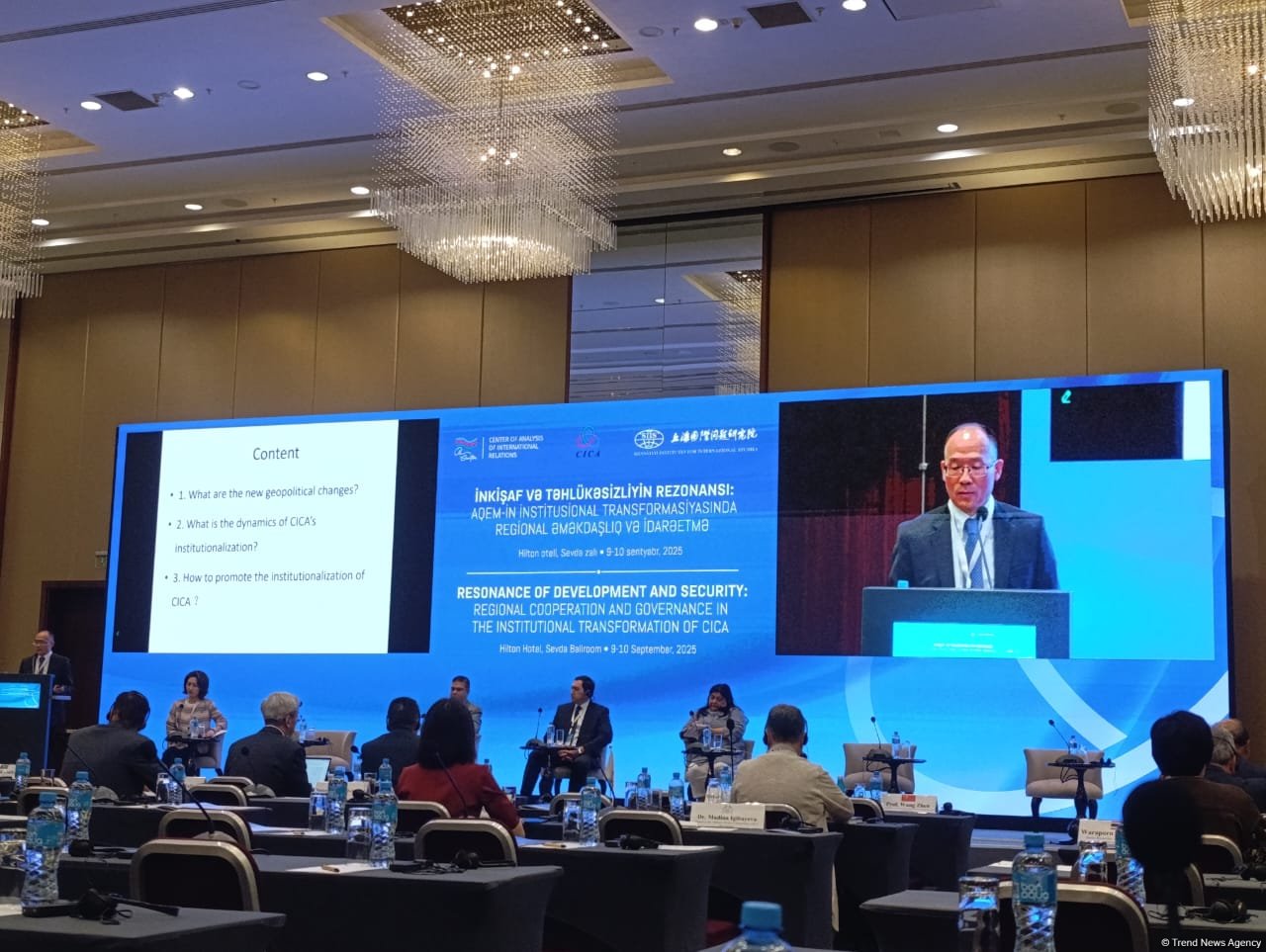BAKU, Azerbaijan, September 10. The Conference on Interaction and Confidence Building Measures in Asia (CICA) as a regional platform and mechanism has significant potential to fill existing gaps in the area of international cooperation, Deputy Director at the Institute for International Relation Studies, Shanghai Academy of Social Sciences, Wang Zhen said, Trend reports.
He made the remark at the 13th Meeting of the CICA Think Tank Forum on the theme "Resonance of Development and Security: Regional Cooperation and Governance in the Institutional Transformation of CICA" in Baku today.
"The main driving force of CICA is consensus. Therefore, the key task for the future is to strengthen and develop it. Changes in global geopolitics create a situation that must be addressed through joint efforts," Zhen noted.
He added that to reach the set goals of CICA, it's important to step up institutional effectiveness.
"CICA has already formed a ramified working mechanism—from summits to specialized centers, covering a wide variety of areas. However, in the future, it's important not only to maintain this structure, but also to increase its effectiveness," the deputy director emphasized.
At the 1992 UN General Assembly, Kazakhstan's then-President Nursultan Nazarbayev proposed the Conference on Interaction and Confidence Building Measures in Asia (CICA). The Declaration on Principles Guiding Relations between CICA Member States and the Almaty Act, approved in 1999 and 2002, respectively, are the organization's basic texts. Asian nations welcomed the CICA plan. The interested countries met for seven years to explore CICA modalities and create basic papers. On September 14, 1999, 15 member states attended the first CICA Ministers of Foreign Affairs meeting. CICA Member States adopted the Declaration on Principles Guiding Relations during this meeting.
Stay up-to-date with more news on Trend News Agency's WhatsApp channel







